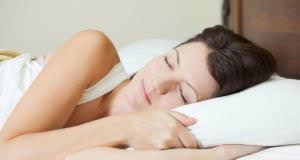The Longer You’re Awake, The Slower You Get
Anyone that has ever had trouble sleeping can attest to the difficulties at work the following day. Experts recommend eight hours of sleep per night for ideal health and productivity, but what if five to six hours of sleep is your norm? Is your work still negatively affected? A team of researchers at Brigham and Women's Hospital (BWH) have discovered that regardless of how tired you perceive yourself to be, that lack of sleep can influence the way you perform certain tasks.
Higher Death Risk With Sleeping Pills
People are relying on sleeping pills more than ever to get a good night's rest, but a new study by Scripps Clinic researchers links the medications to a 4.6 times higher risk of death and a significant increase in cancer cases among regular pill users.
Body Clock Receptor Linked To Diabetes In New Genetic Study
A study recently published in Nature Genetics has found new evidence for a link between the body clock hormone melatonin and type 2 diabetes. The study found that people who carry rare genetic mutations in the receptor for melatonin have a much higher risk of type 2 diabetes.
Mid-Afternoon Slump? Why A Sugar Rush May Not Be The Answer
Protein -- not sugar -- stimulates cells keeping us thin and awake, a new study suggests. A new study has found that protein and not sugar activates the cells responsible for keeping us awake and burning calories. The research, published in the Nov. 17 issue of the scientific journal Neuron, has...
Secrets Of The ‘Sleep Hormone’: Discovery Leads To Novel Melatonin Drug...
A team from the Research Institute of the McGill University Health Centre (RI-MUHC) and McGill University has made a major breakthrough by unraveling the inner workings of melatonin, also known as the "sleep hormone." The research, conducted in collaboration with scientists in Italy,...
Dreaming Takes The Sting Out Of Painful Memories, Research Shows
They say time heals all wounds, and new research from the University of California, Berkeley, indicates that time spent in dream sleep can help us overcome painful ordeals. UC Berkeley researchers have found that during the dream phase of sleep, also known as REM sleep, our stress chemistry shuts down and the brain processes emotional experiences and takes the edge off difficult memories.
Wakeup Call For College Students: New Research Finds You Need To...
University of Cincinnati research finds that college students could be undermining their own education, simply because they're not practicing proper sleep habits. The study, led by Adam Knowlden, a UC doctoral student in UC's Health Promotion and Education Program, also holds recommendations for students to form better sleep habits that will ultimately enhance their learning.
New Evidence Of Age-Related Decline In The Brain’s Master Circadian Clock
A new study of the brain's master circadian clock -- known as the suprachiasmatic nucleus, or SCN -- reveals that a key pattern of rhythmic neural activity begins to decline by middle age. The study, whose senior author is UCLA Chancellor Gene Block, may have implications for the large number of older people who have difficulty sleeping and adjusting to time changes.
Obstructive Sleep Apnea Linked to Blood Vessel Abnormalities
Obstructive sleep apnea may cause changes in blood vessel function that reduces blood supply to the heart in people who are otherwise healthy, according...
Universal Signaling Pathway Found To Regulate Sleep
Sleeping worms have much to teach people, a notion famously applied by the children's show "Sesame Street," in which Oscar the Grouch often reads bedtime stories to his pet worm Slimy. Based on research with their own worms, a team of neurobiologists at Brown University and several other institutions has now found that "Notch," a fundamental signaling pathway found in all animals, is directly involved in sleep in the nematode C. elegans.
As We Sleep, Speedy Brain Waves Boost Our Ability To Learn
Scientists have long puzzled over the many hours we spend in light, dreamless slumber. But a new study from the University of California, Berkeley, suggests we're busy recharging our brain's learning capacity during this traditionally undervalued phase of sleep, which can take up half the night.
Sleepy Connected Americans
The 2011 Sleep in America® poll released March 7 by the National Sleep Foundation (NSF) finds pervasive use of communications technology in the hour before bed. It also finds that a significant number of Americans aren't getting the sleep they say they need and are searching for ways to cope.














